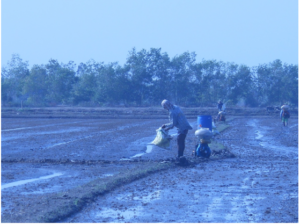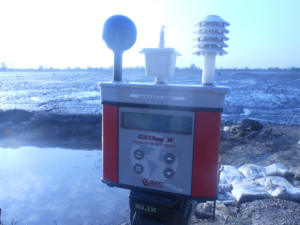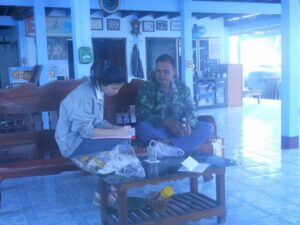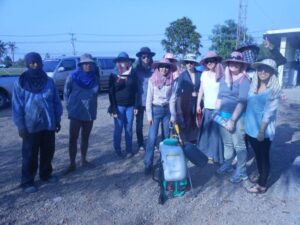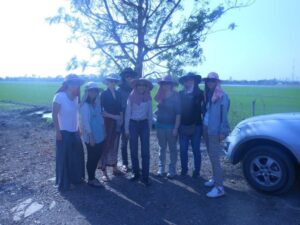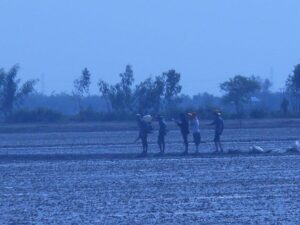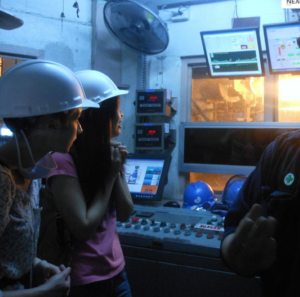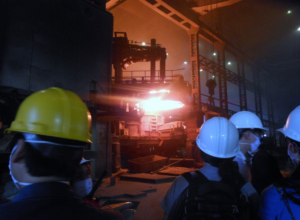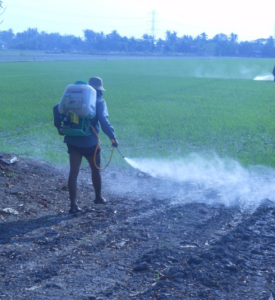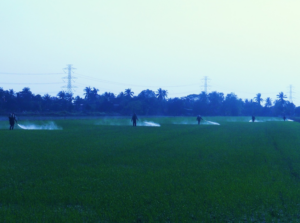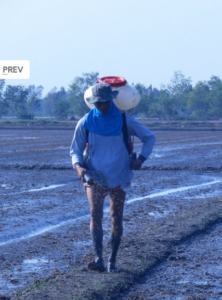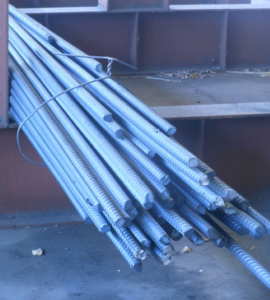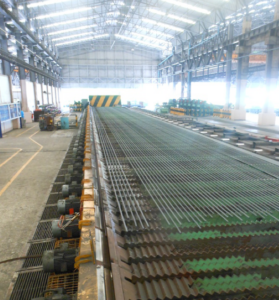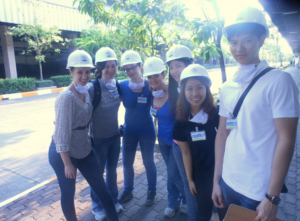Past studies have shown that workers laboring in dangerously hot climates have the potential to experience detrimental effects to both their health and productivity. In the time of climate change, increasing global temperatures exacerbate this relationship and threaten the welfare of thousands of lower and middle-income workers in tropical developing countries. In collaboration with Thammasat University in Thailand and in contribution to the “High Occupational Temperature: Health and Productivity Suppression” (HOTHAPS) international study, our goal was to evaluate and compare how natural and artificial heat in Pathumthani and Samutprakan provinces affect agricultural and industrial workers using observations, interviews, and Wet Bulb Globe Temperature data. The analysis of our data showed that agricultural workers feel the effects of heat more than industrial workers due to their direct exposure to the natural environment, lack of amenities, and lack of regulated working time. This analysis served as the focus of our recommendations to the workers, foreman/owners, researchers, and influential health and environmental organizations.
